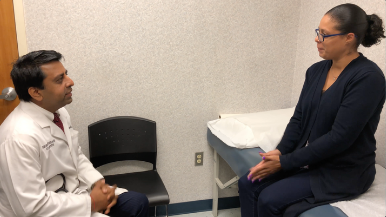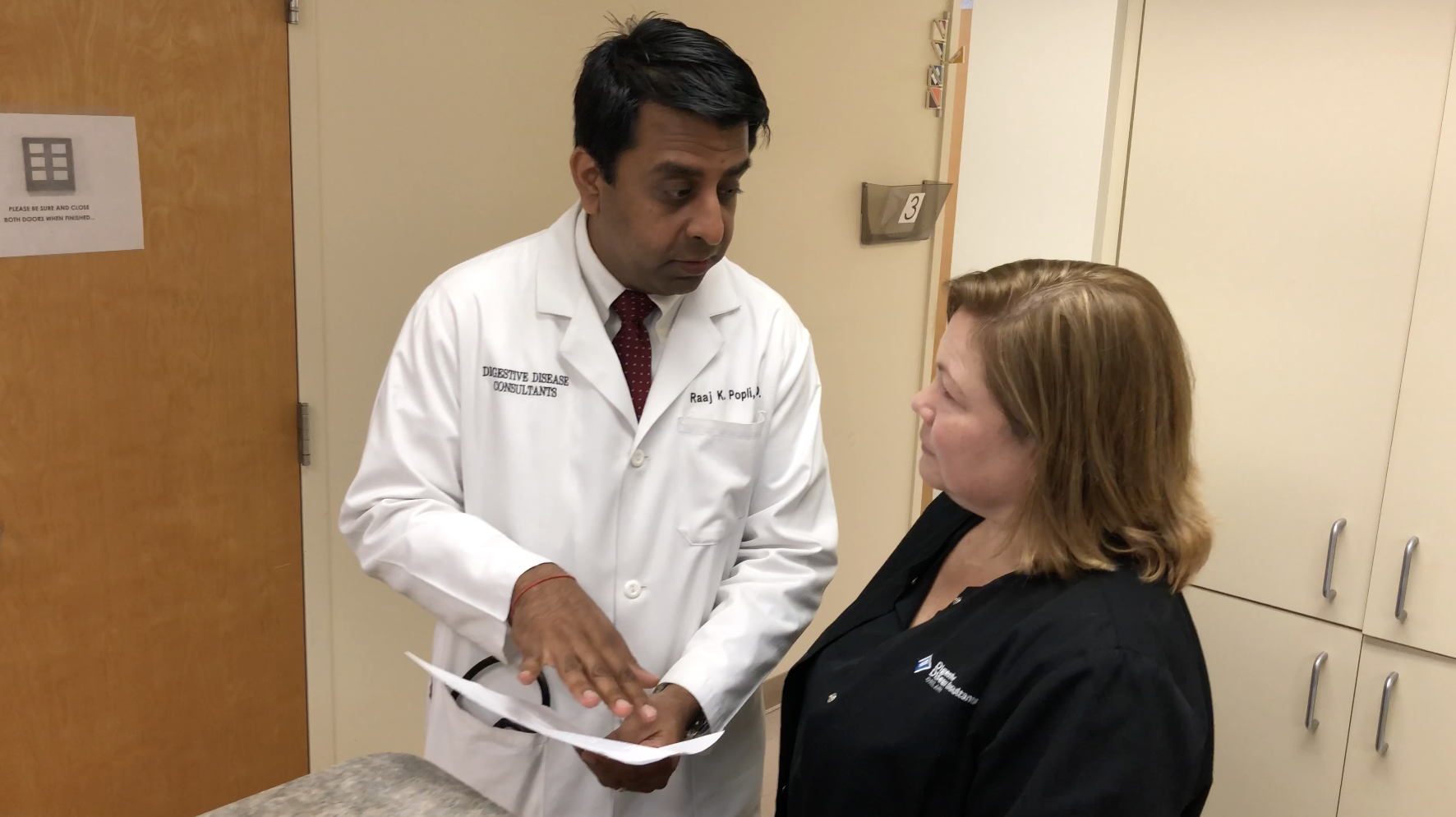- What is colon cancer?
- What is the best way to prevent colon cancer?
- What is colonoscopy?
- Who should have a colonoscopy?
Colorectal cancer occurs in one in 22 men and one in 24 women in the United States each year. Raaj K. Popli, M.D., a gastroenterologist at Digestive Disease Consultants Orlando, says “Colon cancer is incredibly common in this country. The most recent American Cancer Society figures were that colon cancer is the second leading cause of cancer deaths in the United States.” These sobering statistics are improved with one positive fact: So, why is a colonoscopy done? Simply because colon cancer is preventable with a regular screening called a colonoscopy.
What is Colon Cancer?
The American Cancer Society defines colon cancer as, “a disease characterized by the unchecked division and survival of abnormal cells. When this type of abnormal growth occurs in the colon or rectum, it is called colorectal cancer (CRC).”
The colon and rectum are part of the gastrointestinal system (GI), which processes food and eliminates waste. After you swallow food, it travels south through the esophagus to the stomach. The stomach absorbs nutrients and breaks down food, passing the remains through the small intestine, that lies just under the stomach, and the on to the large intestine, until finally, the waste is eliminated out of the rectum as stool. Colon, or colorectal cancer begins as a noncancerous polyp, or growth within the inner lining of the small or large intestine.
Each year, just over 53,000 Americans die from colorectal cancer. These deaths are preventable; Dr. Popli says, “The important part…is that we feel we can actually prevent colon cancer. Not just find it early but actually prevent it.”
What is the Best Way to Prevent Colon Cancer?
 Screening for colon cancer regularly is the best way to prevent it. Dr. Popli points out, “Current data has shown that colonoscopy has been very effective at reducing the rates of colon cancer. In fact, the rates of colon cancer are dropping in this country because we’re doing effective colon cancer screenings.”
Screening for colon cancer regularly is the best way to prevent it. Dr. Popli points out, “Current data has shown that colonoscopy has been very effective at reducing the rates of colon cancer. In fact, the rates of colon cancer are dropping in this country because we’re doing effective colon cancer screenings.”
The American Cancer Society says there are six important things you can do now to prevent colon cancer:
- The best way to prevent colon cancer is to undergo a preventative screening called a colonoscopy to find and eliminate polyps before they cause a problem
- Eat more vegetables, grains, and fruits; these diets have been shown to reduce colorectal cancer
- Exercise regularly to reduce your risk
- Watch your weight; obesity increases your risk of colorectal cancer
- Avoid smoking, which can cause a host of diseases, including colorectal cancer
- Limit your alcohol consumption because alcohol use has been linked to higher rates of these cancers
A colonoscopy is particularly important as a cancer preventative because it finds potentially cancerous cells before it spreads to the rest of the body. Dr. Popli tells us, “The reason we can find it early is because colon cancer starts out as a polyp. A polyp is a term used for a benign growth of the colon that is considered precancerous. The goal of managing colon cancer is to find these benign polyps and remove them before they become something like colon cancer.”
What is a Colonoscopy?
A colonoscopy is a preventative test that looks for cancer before it develops in the colon. The procedure can often find pre-cancerous polyps on the inside of the intestines that can be removed before they turn cancerous. Dr. Popli says, “It’s important to note that polyps don’t cause any symptoms. So, you’re not going to have any pain or bleeding or any associated symptoms with polyps. It’s very important to get yourself checked for these polyps before you have any symptoms. This is the importance of colonoscopy.”
During a colonoscopy procedure, a colonoscope, which is a small flexible tube with a lighted camera, is inserted into the rectum. The scope is long enough to go through your entire colon, which is roughly five feet long. There is a channel in the colonoscope which allows the doctor to pump air into the colon to inflate it so the doctor can have a clear view.
The doctor carefully guides the camera through the colon to search for any polyps or other abnormalities. If necessary, the polyps can be snipped away with tiny tools at the end of the colonoscope. The person undergoing the screening is given a sedative and sleeps through the procedure.
Before the colonoscopy you will be required to take medications to fully empty the colon, and to abstain from eating so the colon is unobstructed. After the exam, it takes about an hour to recover from the sedative. Patients have someone drive them home because it can take a full day for the effects of the medication to wear off.
Who Should Have a Colonoscopy?
 Some of the leading indicators that you should have a colonoscopy screening include:
Some of the leading indicators that you should have a colonoscopy screening include:
- You are aged 45 or higher
- You receive a positive test on a prior colorectal cancer screening
- You have symptoms of colon cancer, which could include:
- Abdominal cramping or pain
- Blood in your bowel movement
- Changes in normal bowel movements such as narrowing of the stool
- Dark-colored stools
- Diarrhea or constipation that lasts for a long period of time
- Rectal bleeding
- Unusual or unintended weight loss
While these symptoms could be a sign of colon cancer, they are also signs of other types of illnesses, so if you are concerned at all, please see your doctor for a consultation.
The American Cancer Society says, “People who are in good health and with a life expectancy of more than 10 years should continue regular colorectal cancer screening through the age of 75.” If you are aged 76 to 85, see your doctor to determine if a colon screening is necessary. The American Cancer Society says that people over 85 years old should not receive colorectal cancer screening.
Dr. Popli and the experienced team at Digestive Disease Consultants Orlando know that preventative screening of colorectal cancer saves lives. For more than 25-years we’ve worked to protect the health of our patients. If it’s time to schedule your colonoscopy, or if you’re concerned about your health, please don’t hesitate to talk with us. We are here to help.
